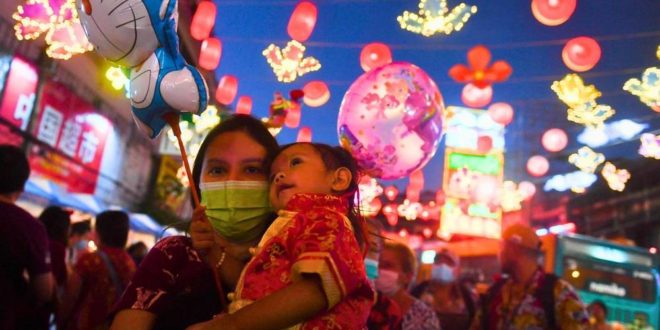Having a baby in China is a complex undertaking for many parents who must juggle work and family life, with a lack of government assistance partly explaining the country’s decline in births.
And China announced, last Tuesday, that its population decreased last year for the first time in six decades. This carries the signs of a demographic crisis that could limit growth and severely affect public finances.
In an attempt to encourage births, local authorities pay parents monthly family allowances, birth allowances that sometimes exceed a thousand dollars, or even provide facilities to buy an apartment.
But the fast pace of life, the pressure of the world of work, the cost of education, as well as the desire to provide the best possible conditions for children, discourage many couples from having more children.
Wenjing, a 30-year-old blogger specializing in reproductive matters, considers that the aid provided by the state is insufficient, as “many families already find it extremely difficult to raise one child.”
She points out that “the pandemic has caused real financial suffering to many couples who have decided not to have more children.”
And after decades of the one-child policy, since 2021, Chinese couples can have three children.
Major cities such as Beijing and Shanghai extended maternity leave to 158 days, 60 days more than the nationally granted period. The health authorities are also urging communities to set up more nurseries.
Nursery and breast-feeding
Reserving a seat in a private nursery can cost between five thousand and twenty thousand yuan per month ($740 and $2,950) in Beijing, according to the Asia Society Policy Institute.
Many young people live in cities far from their families, sometimes in other provinces, which deprives grandparents of helping parents raise their children.
For Nancy (a pseudonym), a mother in her thirties who works in e-commerce in Beijing, reconciling her work with raising her child has become a daunting task, and she says, “It has become impossible for me to find a balance” between the two tasks.
And she adds, “If you want to breastfeed your child, it will not be possible to work in a job,” as the child cannot be taken to the office, “but we cannot bear the consequences of resigning from the job, given our financial situation.”
Parents in China often focus their attention on one child to enhance his chances of success in a society that is fiercely competitive. This phenomenon contributed to the decline in births, according to Nancy.
And she adds, “Of course, if a person’s ambitions are lower, he will not be so tired. But the majority of people raise their children very seriously.
And she continues, “If we leave our work at five in the afternoon to take care of our child, then we will be given less work, and our colleagues will outperform us,” in terms of professional opportunities.
“If people of my generation are able to work, it is to a large extent based on the exploitation of our parents who help us raise our children for many years,” Nancy says.
“I don’t care much about raising my son,” Nancy admits. I come home late at night, and I don’t see him much.”
 Media ININ Economy We Trust
Media ININ Economy We Trust








